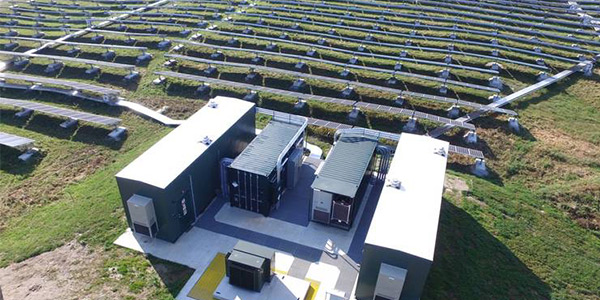Rhode Island is seeking input from municipalities to ensure a plan to fund community microgrids meets their needs.
The state’s Office of Energy Resources (OER) issued a request for information to supplement a report issued several years ago on the framework for a microgrid program to reduce greenhouse gas emissions, enable the integration of renewables and provide resilience for critical facilities during outages.
“In 2020, OER identified funding through the Regional Greenhouse Gas Initiative (RGGI) to support a microgrid program, and we’ll be partnering with the Renewable Energy Fund to deploy this program,” Shauna Beland, administrator of renewable energy programs at OER, said Wednesday.
While anyone can respond to the call for input, OER is seeking comments specifically from Rhode Island cities and towns, Beland said during a webinar on the proposed Microgrids for Resilient Municipalities program.
“We didn’t want to do a top-down program design where we just issue [a request for proposal] or [a request for quote] for feasibility or construction without a detailed understanding of what [municipalities] might need,” she said. Input from the public, she added, “will directly inform program design and identify what types of funding need to be prioritized with our limited funds.”
Rhode Island’s 2019 Plan B allocation for RGGI proceeds sets aside $1.5 million for the Microgrids for Resilient Municipalities program.
She said that among the critical details, the request for information will support how the program defines public benefits that a microgrid project must provide to qualify for funding.
“We’ve defined a public benefit as an identifiable benefit that can be accessed by members of the public works or accessed by members of the public,” Beland said. Examples, she added, include a municipal complex with a 911 call center that would stay operational during a power outage or a senior center that can keep refrigerators on for medication.
Beland said OER also wants input on its proposal for program eligibility. OER would like applicants to meet one of the following criteria:
- a municipality that has participated in the Rhode Island Infrastructure Bank’s Municipal Resilience Program and that owns, operates or maintains the critical infrastructure component of a proposed microgrid; or
- a municipality that has an energy manager or committee that can lead a microgrid project, and that owns, operates or maintains the critical infrastructure component of a proposed microgrid.
OER also will consider non-municipal applicants that are under contract with a municipality that meets one of the first two criteria.
The Municipal Resilience Program, Beland said, “gets municipalities thinking about what their needs are related to resiliency.”
“We would like to make sure that municipalities are thinking resilient, thinking about resiliency holistically, and then from that decision-making process think about a microgrid project,” she said.
OER is accepting input on the program through April 9.
This article was updated on March 18 at 9:30 a.m. EDT to correct the RGGI funding allocation for the microgrid program.




